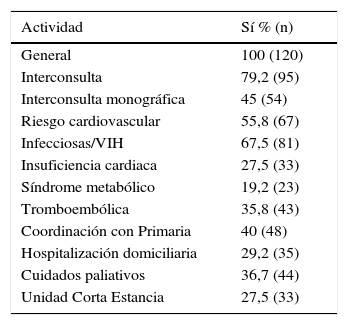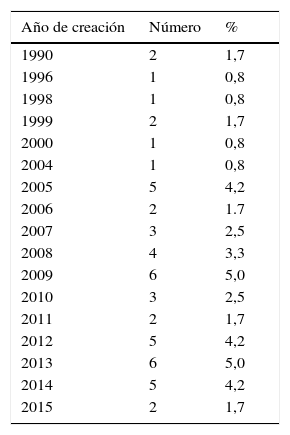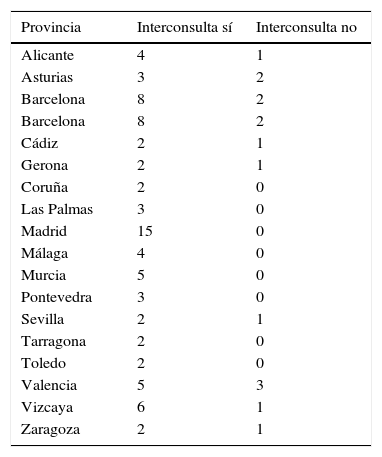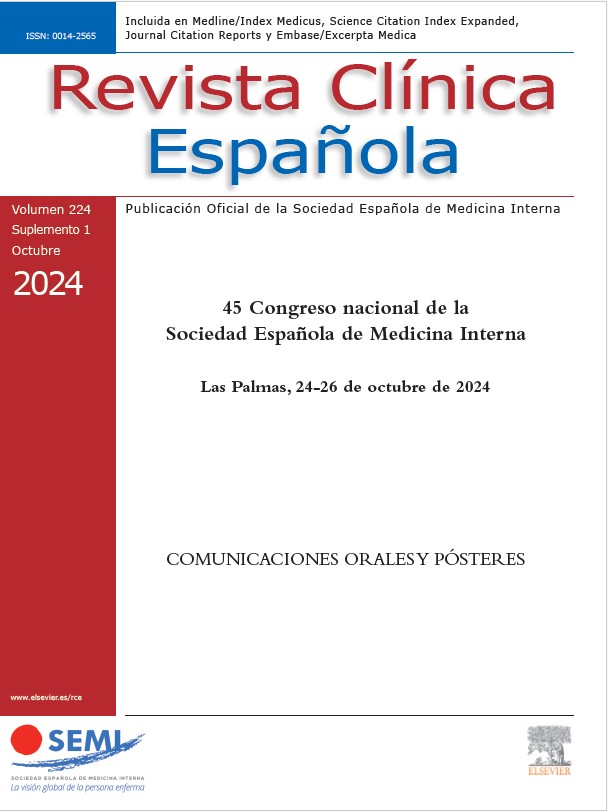Analizar la actividad de interconsulta (IC), realizada por los Servicios de Medicina Interna (SMI), transmitir su importancia a los gestores y ofrecer información a los SMI para mejorar la organización de la misma.
MétodosEstudio transversal mediante una encuesta de actividad en IC (actividad de consultoría a demanda para otros servicios) y asistencia compartida (actividad de consultoría que se presta de modo reglado en otros servicios).
ResultadosSe recibieron 120 encuestas que correspondían a 108 hospitales públicos y 12 privados. El 45% de los hospitales encuestados disponen de unidad de IC monográfica y en el 31% existe asistencia compartida. El servicio más frecuentemente asistido por una consultoría estable (65% de los casos) fue cirugía ortopédica y traumatología. El 55% de los SMI encuestados lleva un registro de la actividad de IC desde el inicio de su actividad. El 92% de los servicios carece de un protocolo que regule la IC y en el 74% de los casos la IC se responde a demanda.
ConclusionesLa actividad de IC está generalizada en los SMI, pero solo el 45% de ellos disponen de unidades de IC y el 33% prestan la modalidad de asistencia compartida. La encuesta refleja carencias de formación y cierta confusión en el concepto de IC. La gran mayoría de los servicios carecen de protocolos organizativos de IC.
To analyse the activity of interconsultations conducted by the departments of internal medicine, communicating their importance to managers and offering information to these departments to improve their organisation.
MethodsA cross-sectional study was conducted using an interconsultation activity survey (on-demand consulting activity for other departments) and shared care (consulting activity provided in a regulated manner to other departments).
ResultsWe received 120 surveys that corresponded to 108 public and 12 private hospitals. Forty-five percent of the surveyed hospitals had a specialised interconsultation unit, and 31% had shared care. The department most frequently helped by the presence of a stable consultation unit (65% of the cases) was orthopaedic and trauma surgery. Fifty-five percent of the departments of internal medicine surveyed had an interconsultation activity record since the start of their activity. Ninety-two percent of the departments lacked a protocol that regulated interconsultations, and in 74% of the cases, the interconsultation was on demand.
ConclusionsThe interconsultation activity is generalised in the departments of internal medicine, but only 45% of these departments have interconsultation units, and only 33% provide the shared care modality. The survey reflects the shortcomings of training and some confusion in the concept of interconsultations. The considerable majority of departments lack organisational interconsultation protocols.
Artículo
Diríjase desde aquí a la web de la >>>FESEMI<<< e inicie sesión mediante el formulario que se encuentra en la barra superior, pulsando sobre el candado.

Una vez autentificado, en la misma web de FESEMI, en el menú superior, elija la opción deseada.

>>>FESEMI<<<
Comprando el artículo el PDF del mismo podrá ser descargado
Precio 19,34 €
Comprar ahora









